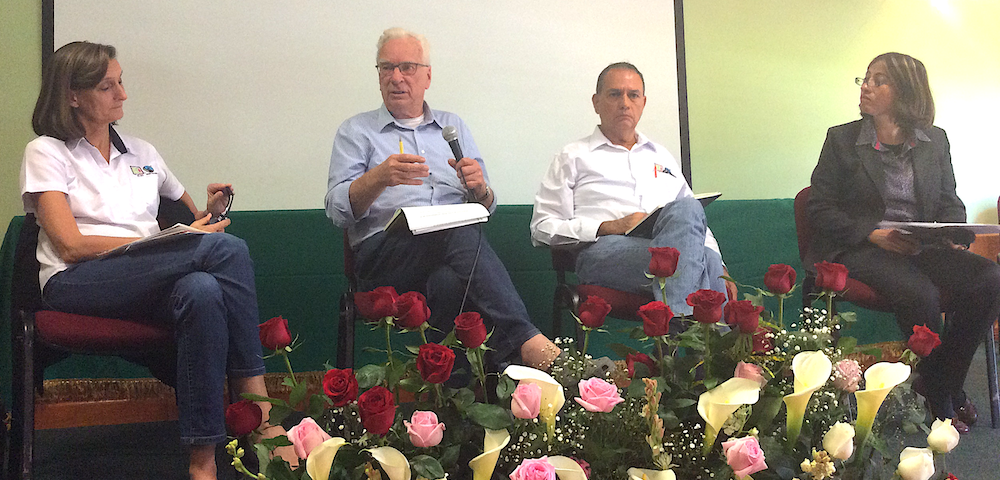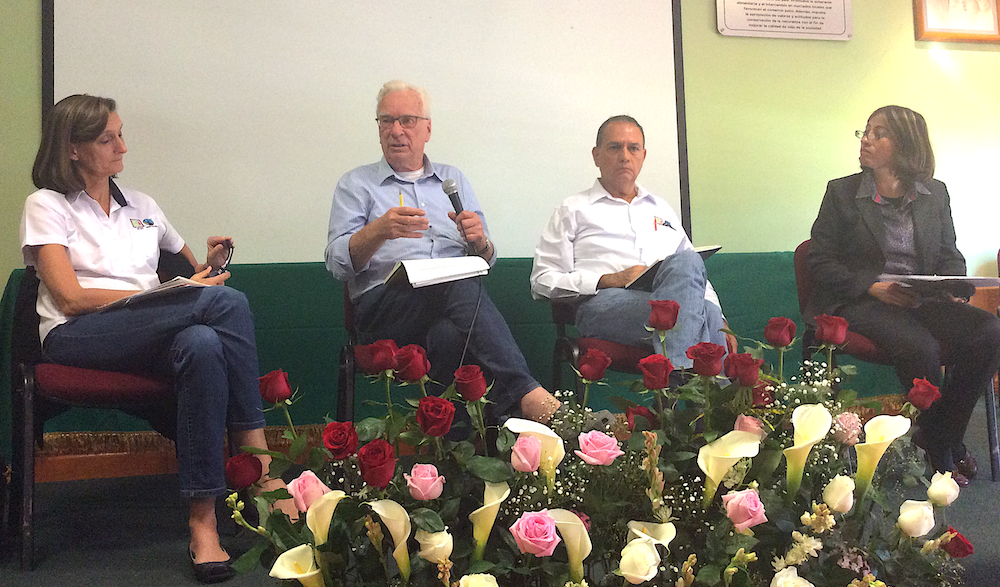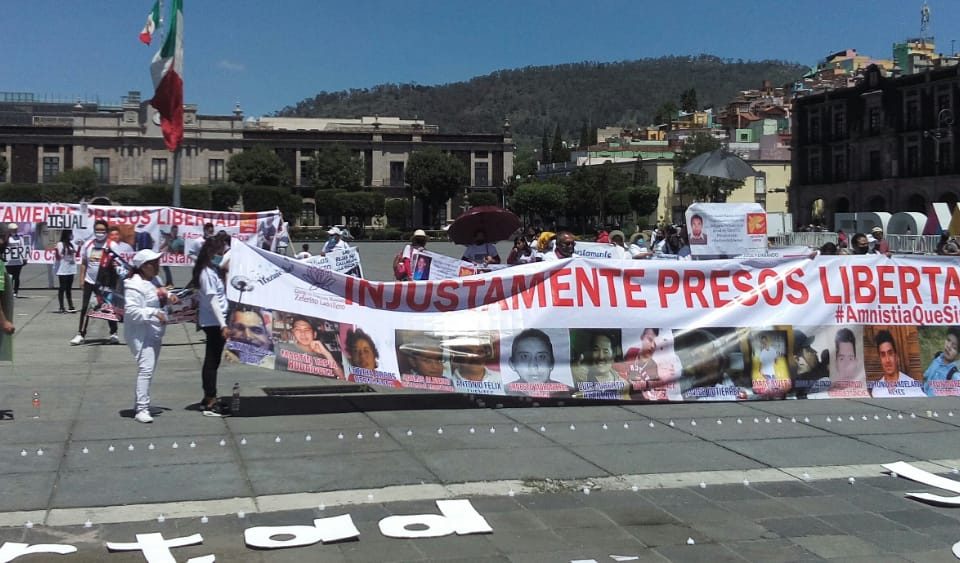
LeBarón meet with AMLO
December 3, 2019
Review Legislature request of 5 thousand MDP to the Judiciary
December 5, 2019FAIR TRADE, ROUTE TO REVALUE THE WORK OF SMALL PRODUCERS

HIGHLIGHTS
FAIR TRADE, ROUTE TO REVALUE THE WORK OF SMALL PRODUCERS

December 3rd, 2019
Conventional trade in agri-food products has led to situations where up to 95% of profits remain in companies and only 5% with farmers, so Fair Trade (CJ) represents an opportunity for small producers in Latin America, including Mexico, where between 10 and 13% ends up being in the hands of small producers; Due to this, among other factors, there is a growing trend and today represents global sales of 9.8 million euros, involving around 1 thousand 70 organizations and 1.7 million farmers, experts said during the 1st Meeting of Latin American Universities for Fair Trade .
In this international forum, held in the Department of Agroecology of the Autonomous University Chapingo (UACh), where representatives of universities from Brazil, Argentina, Chile, Colombia, Ecuador, Dominican Republic, and Mexico participated, the specialists stressed that this scheme not only includes economic profitability but also social and environmental returns. Therefore, the State and institutions must encourage it, for example, through public purchases of products, where they give preference to small producers of CJ and think of mechanisms to compensate for the environmental benefits that are generated around crops such as coffee or production of honey.
Fair Trade with a guarantee seal known as Fairtrade “represents escaping the cold prices established by the stock exchanges that know little about the producer's work”. For example, if coffee in the world market is around 100 dollars per quintal (100 pounds), the Fairtrade price is 190 dollars - where 140 correspond to the minimum price, 20 to the social prize and 30 if it is an organic product - said the coordinator of the Chapingo-Latin American University for Fair Trade Campaign, Laura Gómez Tovar.
As part of the meeting, the Conversation was held: Let's Talk about Fair Trade. Beginnings, development and future, where the founder of the Fair Trade Movement with a guarantee seal, Frans VanderHoff, said that today in the world "fair trade is urgent and necessary", which is based on the supply of products from small producers organized in the market under criteria that are not purely capitalist, where the social cost of production must be met and the expenses of productive organization must be met. Therefore, a minimum price, a social price, and a premium are established when there is an organic certificate.
He also said that with the organization and quality of products small producers can compete with large companies and improve their quality of life. "Our proposal is another form of commerce that includes solidarity, fraternity and being responsible for the environment."
The president of the board of directors of the Latin American and Caribbean Coordinator of Small Producers and Fair Trade Workers (CLAC), Miguel Ángel Munguía, which integrates 24 countries and 916 organizations, said that this form of trade has grown throughout the years, it is a process that began with organizations of small producers, "it is a more just and ethical relationship", since it involves combating poverty, improvement of living conditions, access to basic services such as education, health and housing.
The specialist stressed that the State would have to accept the proposals of this system and begin to establish a relationship for small producers organized through public purchases; If you want to activate the economy of the communities of the Sierra de Oaxaca, the Yucatan Peninsula or the Sierra de Veracruz, why don't you promote that products for hospitals, canteens or supply stores come from organizations of small producers?
It is necessary to build - underlined - opportunities from articulation in the value chain, which is more fair and equitable and the government can make a decision to work with productive organizations, where leaders are appointed in a democratic manner.
Marike de Peña, former CLAC president and producer of Fairtrade bananas in the Dominican Republic, remarked that the CJ “beyond a better price is a movement that works with small producers as actors of change, that works collectively in commerce and in the lives of our peoples and that affects governments so that producers and citizens are not dependent on any kind of charity.
Participants stressed that a fundamental aspect of this system is that it recognizes the value of social organizations - such indicators as administrative transparency, democracy -, takes care that there is no child labor or use of very dangerous pesticides and considers other environmental standards and social.
Challenges
The director of the Mexican Coordinator of Small Producers of Fair Trade, Luis Martínez Villanueva, who represents 65 organizations of small producers of coffee, honey, citrus, avocado and other products certified under the CJ scheme, considered one of the main challenges it is the interference of transnational companies within the movement, because the system is not prepared to control them; We are not saying that they are not, but how they are and it is necessary to take care that this movement does not lead to “washing their faces only”, but that there must be a real transformation of the concepts that they handle.
A fundamental aspect, he added, is to ensure that economic benefits are transmitted to small producers and that they do not stay in large companies, exporters, importers, processors and supermarkets, “where more than 90% of the value paid by the final consumer remains, while the final producer reaches, although it does, 10% and that is not fair ”.
In this regard, Miguel Ángel Munguía called to analyze “the benefits” of the incursion of large companies, because there is the risk of distorting the system by simply calling itself a fair trade “with the idea of increasing sales and marketing and reaching that consumer is socially sensitive".
Frans VanderHoff was blunt in pointing out that "big companies should get them out of Fairtrade's record, they shouldn't be, but they are"; and on the other hand, there is distrust in organizations that they are not able to do all the processes: gathering, processing, adding value and exporting; But we have done it.
The participants in the meeting agreed that there are great challenges because it is not easy to get fair and ethical trade to stand against the other type of trade that seeks profit, which is against the environment; But there are many possibilities to the extent that this link between producers and consumers develops.
The meeting - which was held from November 26-28 - is part of the awareness and advocacy campaign that aims to create a network of Latin American and Caribbean universities that support fair trade through various academic activities, extension social and direct link with organizations of small producers of fair trade. There, experiences from various universities in Latin America were presented. The inauguration was in charge of the rector of the UACh, Dr. José Solís Ramírez.
Staff
Translator: Martín Caballero
Conventional trade in agri-food products has led to situations where up to 95% of profits remain in companies and only 5% with farmers, so Fair Trade (CJ) represents an opportunity for small producers in Latin America, including Mexico, where between 10 and 13% ends up being in the hands of small producers; Due to this, among other factors, there is a growing trend and today represents global sales of 9.8 million euros, involving around 1 thousand 70 organizations and 1.7 million farmers, experts said during the 1st Meeting of Latin American Universities for Fair Trade .
In this international forum, held in the Department of Agroecology of the Autonomous University Chapingo (UACh), where representatives of universities from Brazil, Argentina, Chile, Colombia, Ecuador, Dominican Republic, and Mexico participated, the specialists stressed that this scheme not only includes economic profitability but also social and environmental returns. Therefore, the State and institutions must encourage it, for example, through public purchases of products, where they give preference to small producers of CJ and think of mechanisms to compensate for the environmental benefits that are generated around crops such as coffee or production of honey.
Fair Trade with a guarantee seal known as Fairtrade “represents escaping the cold prices established by the stock exchanges that know little about the producer's work”. For example, if coffee in the world market is around 100 dollars per quintal (100 pounds), the Fairtrade price is 190 dollars - where 140 correspond to the minimum price, 20 to the social prize and 30 if it is an organic product - said the coordinator of the Chapingo-Latin American University for Fair Trade Campaign, Laura Gómez Tovar.
As part of the meeting, the Conversation was held: Let's Talk about Fair Trade. Beginnings, development and future, where the founder of the Fair Trade Movement with a guarantee seal, Frans VanderHoff, said that today in the world "fair trade is urgent and necessary", which is based on the supply of products from small producers organized in the market under criteria that are not purely capitalist, where the social cost of production must be met and the expenses of productive organization must be met. Therefore, a minimum price, a social price, and a premium are established when there is an organic certificate.
He also said that with the organization and quality of products small producers can compete with large companies and improve their quality of life. "Our proposal is another form of commerce that includes solidarity, fraternity and being responsible for the environment."
The president of the board of directors of the Latin American and Caribbean Coordinator of Small Producers and Fair Trade Workers (CLAC), Miguel Ángel Munguía, which integrates 24 countries and 916 organizations, said that this form of trade has grown throughout the years, it is a process that began with organizations of small producers, "it is a more just and ethical relationship", since it involves combating poverty, improvement of living conditions, access to basic services such as education, health and housing.
The specialist stressed that the State would have to accept the proposals of this system and begin to establish a relationship for small producers organized through public purchases; If you want to activate the economy of the communities of the Sierra de Oaxaca, the Yucatan Peninsula or the Sierra de Veracruz, why don't you promote that products for hospitals, canteens or supply stores come from organizations of small producers?
It is necessary to build - underlined - opportunities from articulation in the value chain, which is more fair and equitable and the government can make a decision to work with productive organizations, where leaders are appointed in a democratic manner.
Marike de Peña, former CLAC president and producer of Fairtrade bananas in the Dominican Republic, remarked that the CJ “beyond a better price is a movement that works with small producers as actors of change, that works collectively in commerce and in the lives of our peoples and that affects governments so that producers and citizens are not dependent on any kind of charity.
Participants stressed that a fundamental aspect of this system is that it recognizes the value of social organizations - such indicators as administrative transparency, democracy -, takes care that there is no child labor or use of very dangerous pesticides and considers other environmental standards and social.
Challenges
The director of the Mexican Coordinator of Small Producers of Fair Trade, Luis Martínez Villanueva, who represents 65 organizations of small producers of coffee, honey, citrus, avocado and other products certified under the CJ scheme, considered one of the main challenges it is the interference of transnational companies within the movement, because the system is not prepared to control them; We are not saying that they are not, but how they are and it is necessary to take care that this movement does not lead to “washing their faces only”, but that there must be a real transformation of the concepts that they handle.
A fundamental aspect, he added, is to ensure that economic benefits are transmitted to small producers and that they do not stay in large companies, exporters, importers, processors and supermarkets, “where more than 90% of the value paid by the final consumer remains, while the final producer reaches, although it does, 10% and that is not fair ”.
In this regard, Miguel Ángel Munguía called to analyze “the benefits” of the incursion of large companies, because there is the risk of distorting the system by simply calling itself a fair trade “with the idea of increasing sales and marketing and reaching that consumer is socially sensitive".
Frans VanderHoff was blunt in pointing out that "big companies should get them out of Fairtrade's record, they shouldn't be, but they are"; and on the other hand, there is distrust in organizations that they are not able to do all the processes: gathering, processing, adding value and exporting; But we have done it.
The participants in the meeting agreed that there are great challenges because it is not easy to get fair and ethical trade to stand against the other type of trade that seeks profit, which is against the environment; But there are many possibilities to the extent that this link between producers and consumers develops.
The meeting - which was held from November 26-28 - is part of the awareness and advocacy campaign that aims to create a network of Latin American and Caribbean universities that support fair trade through various academic activities, extension social and direct link with organizations of small producers of fair trade. There, experiences from various universities in Latin America were presented. The inauguration was in charge of the rector of the UACh, Dr. José Solís Ramírez.
Staff
Translator: Martín Caballero





